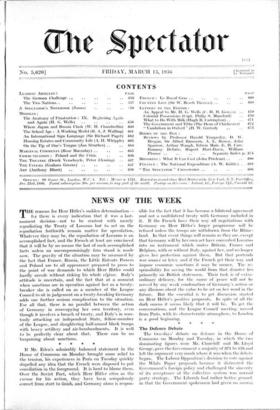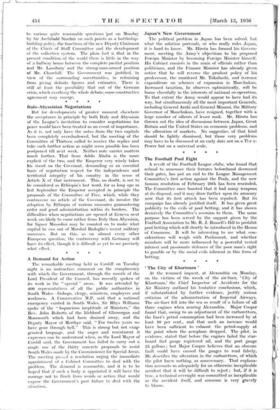The Defence Debate The two-days' debate on defence in the
House of Commons on Monday and Tuesday, in which the two dominating figures were Mr. Churchill and Mr. Lloyd George, gave the Government a majority of 371 to 153 and left the argument very much where it was when the debate began. The Labour Opposition's decision to vote against the White Paper proposals because it distrusted the Government's foreign policy and challenged the sincerity of its acceptance of the collective system was normal party strategy. The Liberals had rather better ground. in that the Government spokesmen had given no answcz to various quite reasonable questions )nit on Monday by Sir Archibald Sinclair on such points as a' battleship- building policy, the functions of the new Deputy Chairman of the Chiefs of Staff Committee and the development of the collective system. The plain fact is that in the present condition of the world there is little in the way of 'a halfway house between the complete pacifist position and Mr. Lansbury and the strong-man-armed position of Mr. Churchill. The Government was justified, in view of the surrounding uncertainties, in refraining from giving definite figures and estimates. There is still at least the possibility that out of the German crisis, which overhung the whole debate, some constructive agreement may emerge.
• *















































 Previous page
Previous page